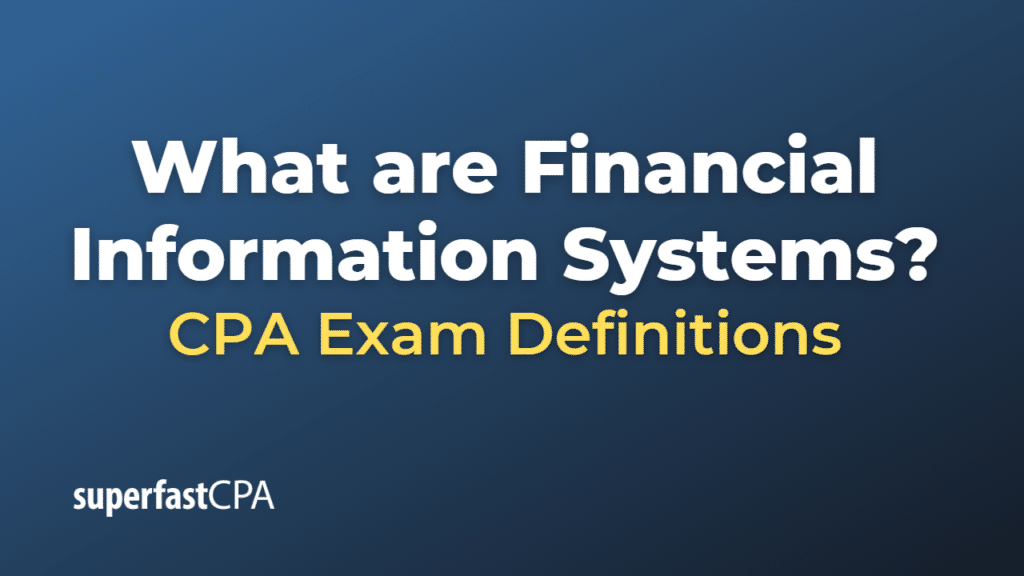Financial Information Systems
A Financial Information System (FIS) is a software system that helps manage the finances and business aspects of a company. These systems store, process, and analyze financial data, enabling companies to track income, expenses, assets, liabilities, and other financial details in real time.
Financial Information Systems often include features for:
- Accounting: These features handle accounts payable, accounts receivable, payroll, general ledger, and other basic accounting functions.
- Financial Reporting: These features enable the creation of detailed financial reports, such as balance sheets, income statements, and cash flow statements.
- Budgeting and Forecasting: These features support the creation of budgets and financial forecasts, and they allow for comparison between actual and budgeted expenses.
- Risk Management: Some FIS can analyze financial risks, helping companies develop strategies to mitigate these risks.
- Investment and Portfolio Management: These features help manage investments and portfolios, providing detailed analysis and reporting on investment performance.
- Billing and Invoicing: These modules handle the creation and tracking of bills and invoices, facilitating the management of receivables.
The specific capabilities of a Financial Information System can vary widely depending on the specific needs of the business. Some businesses may use comprehensive Enterprise Resource Planning (ERP) systems, which integrate FIS features with other business functions like supply chain management and human resources. Others may use standalone FIS software that focuses specifically on financial management.
By providing comprehensive, real-time visibility into a company’s financial situation, a Financial Information System can help company leaders make informed strategic decisions, improve financial planning, ensure compliance with financial regulations, and increase efficiency.
Example of Financial Information Systems
Let’s consider a fictional manufacturing company, “WidgetCo,” and how it might use a Financial Information System (FIS) in its operations.
- Accounting: WidgetCo uses the FIS for its basic accounting operations. The system automatically records every sales transaction, updates the general ledger, and maintains up-to-date balances for accounts receivable and payable. Payroll is also managed through the FIS, ensuring employees are paid accurately and on time.
- Financial Reporting: At the end of each quarter, WidgetCo’s finance team uses the FIS to generate financial reports. These reports include the income statement, balance sheet, and statement of cash flows. They give a detailed picture of WidgetCo’s financial health and are essential for regulatory reporting and for informing decisions by company management.
- budgeting and Forecasting: Each year, WidgetCo’s finance team uses the FIS to help create the company’s budget. The system allows the team to analyze past revenue and expenses in detail, helping them forecast future financial trends. As the year progresses, they can compare actual results with the budgeted figures and adjust plans as necessary.
- Risk Management: The FIS helps WidgetCo manage financial risks. It provides real-time visibility into the company’s financial status, highlighting potential issues such as cash flow shortages or high levels of debt. The system can also generate alerts when key financial metrics fall outside of predefined ranges.
- Investment and Portfolio Management: WidgetCo uses the FIS to manage its investment portfolio. The system provides detailed information on the performance of each investment, enabling the finance team to make informed decisions about buying or selling assets.
- Billing and Invoicing: The FIS manages WidgetCo’s billing and invoicing. It automatically generates invoices for each sale and tracks when payment is received. If a customer is late with a payment, the system can automatically send reminders.
By using a comprehensive FIS, WidgetCo can streamline its financial operations, gain real-time insights into its financial status, ensure regulatory compliance, and make more informed financial decisions.













